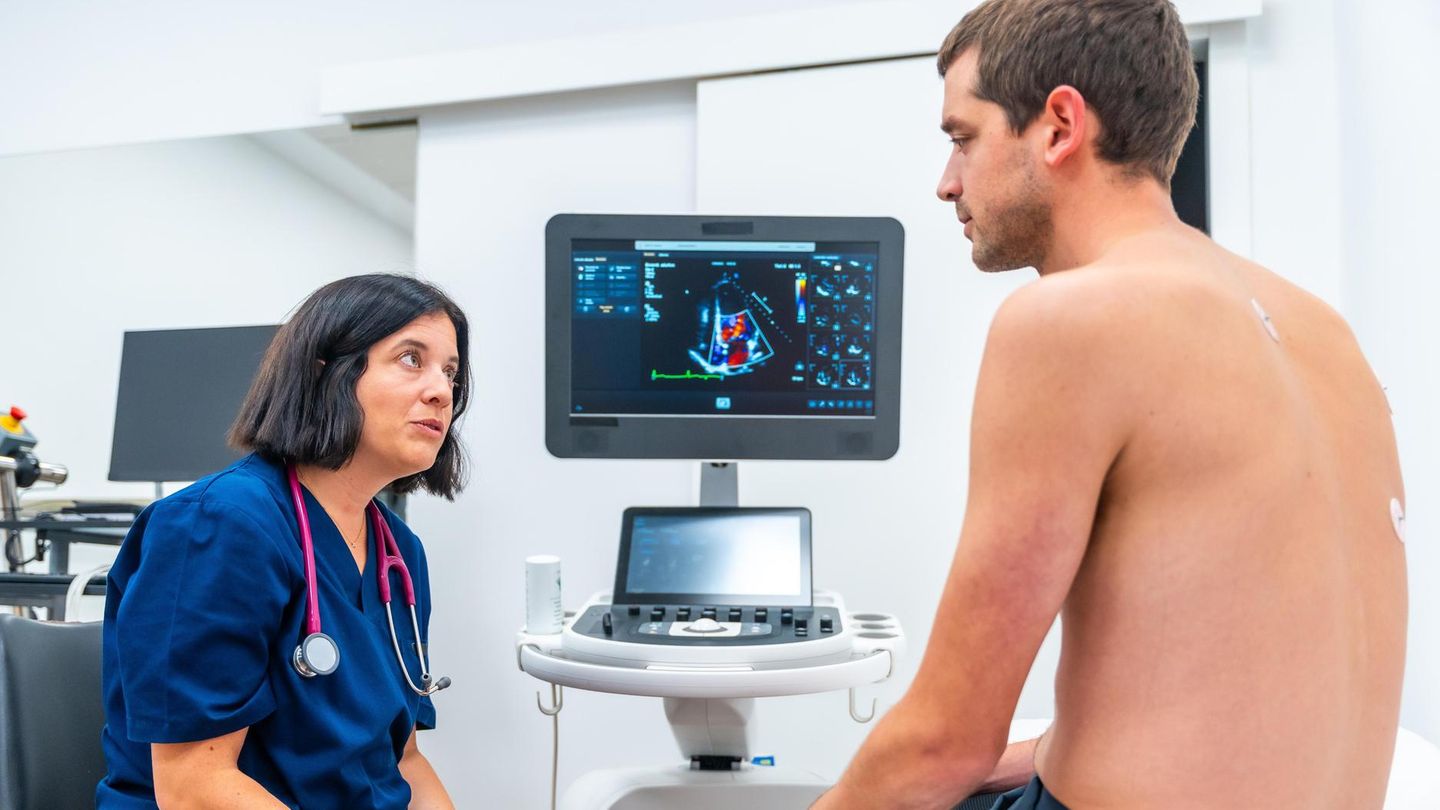Preventive examinations are part of the range of services offered by health insurance companies. Which examinations adults are entitled to and which preventive appointments are worthwhile – even if you have to pay for them yourself.
This article is adapted from the business magazine Capital and is available here for ten days. Afterwards it will only be available to read at again. Capital belongs like that star to RTL Germany.
Many diseases are treatable or curable if doctors detect them in their early stages. If you don’t want to take any risks, it’s best to go for the recommended check-ups regularly. Statutory health insurance companies cover all early detection tests that the Federal Joint Federal Committee recommends in its guidelines. Nevertheless, many Germans miss their chance for early detection: only around 37 percent of German citizens over the age of 14 regularly go for medical check-ups, and around 10 percent of Germans do not take advantage of any check-ups at all. This is shown by current figures from the Allensbach Institute for Demoscopy.
A common reason for this failure is lack of knowledge about which examinations are really useful. Therefore, here is an overview of all the important preventive examinations that health insurance companies cover, as well as some additional services.
This is what health insurance companies pay for all genders
Adults are entitled to a dental check-up every six months. In addition, adults up to the age of 35 can have a one-time general health check-up with their family doctor. In addition to questions about complaints, previous illnesses, family illness history and lifestyle, the doctor checks the vaccination status and blood pressure, listens to the heart and, depending on the risk factors, examines the patient’s blood and urine for possible illnesses. During such appointments, for example, diabetes, kidney problems or cardiovascular problems can be detected early.
Anyone over 35 can have this general check-up done every three years at health insurance costs. During these appointments, patients can also be examined for a hepatitis B or hepatitis C virus infection. Women and men over 35 are also entitled to skin cancer screening every two years. In order for the health insurance company to cover the costs, the examining doctor should have a special permit for skin cancer screening, which is issued by the statutory health insurance associations. Otherwise, the patient usually has to cover the costs themselves.
Preventive examinations for women
Women over 20 can have a Pap smear done once a year by their gynecologist. This genital examination helps in the early detection of cancer. For women up to the age of 25, the health insurance company also covers a test for the sexually transmitted bacterial infection chlamydia once a year. From the age of 30, you can also have your breast checked once a year for signs of breast cancer. From the age of 35, women are entitled to an HPV test and a cytological examination every three years. This is also part of cancer prevention: Anyone infected with HPV has an increased risk of cervical cancer. During cytological examinations, doctors can identify cells that are suspected of being cancerous in the laboratory.
Women between the ages of 50 and 75 are invited for mammography screening every two years. This test allows doctors to detect breast cancer early. The health insurance company also covers colon cancer screening for patients over 50 years old. You can have your stool tested for hidden blood once a year. Patients aged 55 and over can be tested for colon cancer either every two years with a stool sample or with two colonoscopies. The latter must be at least ten years apart.
Pregnant women are entitled to a number of preventive examinations during the course of their pregnancy, which the gynecologist usually informs them about when the pregnancy is diagnosed. This includes ultrasound diagnostics, an examination for gestational diabetes and other blood tests.
Preventive examinations for men
Men aged 45 and over should be examined by a urologist for prostate cancer once a year and take advantage of the examination for early cancer detection of the genitals. Men over 50 can be tested for colon cancer. Either through colonoscopies or laboratory tests for blood in the stool. Men aged 65 and over can have a one-time test for an aneurysm of the abdominal aorta. This is possible for doctors with the approval of the Association of Statutory Health Insurance Physicians.
Which examinations do patients have to pay for themselves?
There are preventive examinations that many doctors recommend, but which health insurance companies do not cover. These are part of the so-called individual health services (IGeL). This includes an annual test by an ophthalmologist for early detection of glaucoma for people over 40 years old. Once this disease has gradually progressed, in the worst case it can cause those affected to go blind. The test at the ophthalmologist costs around 20 euros.
To detect osteoporosis early, doctors advise people over 50 to have a bone density measurement or a vitamin D test every five years. The costs are around 100 euros per examination. With the help of a so-called tumor marker test, cancers such as ovarian cancer, colon cancer or liver cancer can be detected early. Cost: around 60 euros.
There are also IGeL services for pregnant women, which many gynecologists recommend. This includes a toxoplasmosis test. Using a blood test, doctors can detect and treat an infection early, which can prevent damage to newborns. A test for bacterial infection with streptococci is also recommended for pregnant women, but is not covered by statutory health insurance companies.
Preventive examinations as additional services
Many health insurance companies offer their patients additional services in addition to general preventive examinations. The service catalogs at the 95 health insurance funds in Germany are very individual. Depending on which services you value, a comparison is worthwhile. You can get an initial overview from the Internet.
Source: Stern




